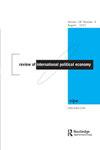Foundering on fallacies: theorizing the Eurozone’s self-harming mercantilism
IF 3.7
1区 经济学
Q1 ECONOMICS
引用次数: 1
Abstract
Abstract The Eurozone’s export-oriented policy regime and pursuit of trade surpluses remains thoroughly puzzling. Rooted in overly strict fiscal policies, inequality and underinvestment; undermining growth and contributing to trade tensions– it defies economic self-interest. This paper develops an analytical framework to confront this puzzle. It argues that these policies are self-harming, but are nonetheless pursued, because of three fallacies that obscure the cost-benefit calculus attached to them. These fallacies are rooted in the empirical problem of observational equivalence: the same observed surplus can be driven by different underlying processes, and its net benefit will depend on our assumptions about these drivers. The first fallacy is mistaking external enablers for domestic competitiveness—interpreting export success to be linked to domestic reform, when it was largely explained by better links to faster growing trading partners. The second fallacy is mistaking weak imports for strong exports—interpreting surpluses as ‘winning’, even when they are not driven by superior exports but sluggish imports. The third fallacy is mismeasuring multinational firms’ contributions to national exports—interpreting profit shifting and assets stashed in low tax jurisdictions as export performance. Germany and Ireland, as paradigmatic ‘success cases of austerity’, are used to expand the argument.建立在谬论之上:将欧元区自我伤害的重商主义理论化
欧元区以出口为导向的政策体制和对贸易顺差的追求仍然令人费解。根源在于过度严格的财政政策、不平等和投资不足;它破坏了经济增长,加剧了贸易紧张局势——违背了经济自身利益。本文提出了一个分析框架来解决这一难题。它认为,这些政策是自我伤害,但仍然被推行,因为三个谬论掩盖了与之相关的成本效益计算。这些谬论根植于观测等价的经验问题:相同的观测盈余可以由不同的潜在过程驱动,其净收益将取决于我们对这些驱动因素的假设。第一个谬论是将外部因素误认为是国内竞争力——将出口的成功解释为与国内改革有关,而这在很大程度上是由与快速增长的贸易伙伴的更好联系来解释的。第二个谬论是将疲软的进口误认为强劲的出口——将盈余解释为“胜利”,即使它们不是由优质的出口驱动,而是由疲软的进口驱动。第三个谬论是错误地衡量跨国公司对国家出口的贡献——将利润转移和资产存放在低税收管辖区解读为出口业绩。作为“紧缩成功案例”的典范,德国和爱尔兰被用来扩大这一论点。
本文章由计算机程序翻译,如有差异,请以英文原文为准。
求助全文
约1分钟内获得全文
求助全文
来源期刊
CiteScore
9.20
自引率
9.30%
发文量
47
期刊介绍:
The Review of Political Economy is a peer-reviewed journal welcoming constructive and critical contributions in all areas of political economy, including the Austrian, Behavioral Economics, Feminist Economics, Institutionalist, Marxian, Post Keynesian, and Sraffian traditions. The Review publishes both theoretical and empirical research, and is also open to submissions in methodology, economic history and the history of economic thought that cast light on issues of contemporary relevance in political economy. Comments on articles published in the Review are encouraged.

 求助内容:
求助内容: 应助结果提醒方式:
应助结果提醒方式:


